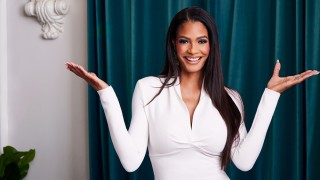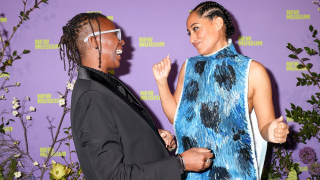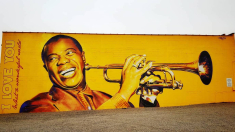Dr. Cecilia Conrad has been an advocate for enhancing the creativity of others most of her adult life. First as a professor of economics, later as a college dean, and now as vice president of the MacArthur Fellowship—a program that offers funding to extraordinary people doing extraordinary things. Dr. Conrad helps assemble an elite group of subject matter expects each month to pick a select few in various fields (ranging from music to agriculture to theater to theoretical physics), and fund projects that will have a positive effect on society.
Headquartered in Chicago, the MacArthur Fellowship—founded in 1970—is a program that selects individuals who meet the criteria of “exceptional creativity, promise for important future advances and potential of the fellowship to facilitate subsequent creative work.” Potential recipients cannot apply, but are rather nominated by a selected group of 12 experts of arts, sciences, and otherwise on a monthly basis. A finalized list of 20-30 people who look to have outstanding work is picked per year. One of Dr. Conrad’s most important responsibilities is to select the nominators.
“One of my jobs is to find who’s nominating,” she says. “So that means that I’m keeping abreast to what’s being published in newspapers, reading specific field journals. I might be reading an article in the arts department of the New York Times one minute and reading something in Nature and Science the next.”
Each recipient is given $625,000 over a five-year, installment-based plan to help fund and develop his or her projects. The grant is “no strings,” meaning the fellows do not need to give reports for how they are spending the money. “We let them choose how the funding can allow them to oversee their project,” Dr. Conrad explained. “That’s better than us trying to dictate how to spend it. And what we’ve found is, that’s a responsibility that our fellows take very seriously.”
Since 1981, the MacArthur Foundation has awarded funds to nearly 900 fellows, all of numerous backgrounds and fields. Some of the fellows have included some of the brightest African-American professionals, including author Colson Whitehead and pianist Jason Moran. Dr. Conrad attributes the diversity of the fellows to the far-reaching nature of the nominator selection process.
“We try to reach a geographically wide group, because we want to make sure that we find creative pursuits that happening all over the country,” she says. “It’s a pretty broad group that we choose from every month.”
Before her appointment to VP of the Foundation in January 2013, Dr. Cecilia Conrad was a member of higher education—teaching economics at Pomona College in 1995 and working her way up to dean by 2007. In 2012, the VP position became available at the Foundation. But despite her qualifications at Pomona, not to mention her previous affiliations with the Foundation on the selection committees, she was reluctant.
“I thought, ‘Well, being vice president, maybe they want somebody with a national name.’ I did have the experience of being on a selection committee of a program. I knew the program very well, and that prepared me well for this position.”
Over time, the fellowship has earned the nickname of the “genius grant” by the press. While complementary to some degree, Dr. Conrad contends that this moniker is more problematic than flattering. “The problem for me with the ‘genius’ moniker is that in the popular designation, it isn’t such a nuanced notion about it. It’s just an idea that someone has done really well on an intelligence test.” Dr. Conrad believes that individual creativity and the ability to apply it to a new idea helps the evolution of communities; it’s what makes the program thrive.
“Creativity is the embodiment of producing something new, asking new questions, connecting seemingly unconnected things, creating more beauty that inspires us,” says Dr. Conrad. “Whereas genius is much more of a capacity, but it doesn’t have to be invested in any particular kind of way.”
As the MacArthur Fellowship continues to select more fellows for 2015, Dr. Conrad wants to expand the program to the consciousness of Black youth. “One of the things that I’ve been pushing in the program,” Dr. Conrad says, “[is], we found out last year that when people hear about the fellows, it inspires them to think about how they could contribute to society and how they could be more creative. I want to make sure that a wide section of the population, particularly young people of color, are aware of the program and pay attention when the announcement gets made and hear about the fellows. Because it helps to inspire them.”













